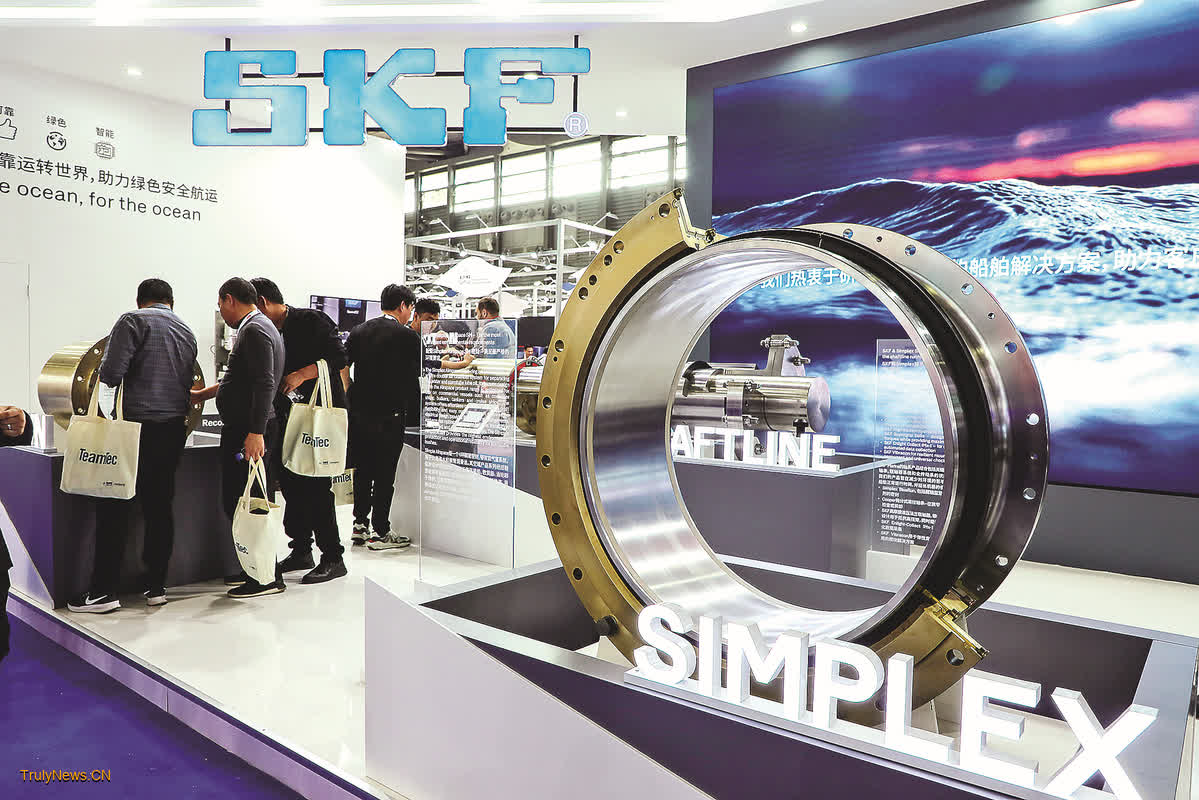
Swedish bearing manufacturer SKF Group spoke highly of China’s rapid development of manufacturing in emerging sectors like electric vehicles and wind power equipment, saying the company will bring new opportunities for global industrial growth.
The group will increase investments in China, said Annika Olme, chief technology officer of SKF, adding the focus will be on localizing the complete value chain, encompassing production, procurement, technical research and development.
“We are committed to ramping up investments in research and development, crafting technologies and solutions that enhance operational efficiency, cut emissions and advance the digitalization of the entire value chain. Moreover, we will intensify investments in automation and regional growth,” said Olme, who is also the company’s senior vice-president for technology development.
“Being the world’s second-largest economy and a pivotal single market on a global scale, China has a substantial role in the international industrial chain, influencing the advancement of diverse industries worldwide. The progress toward decarbonization within China’s industrial sector also has a big influence on global industrial development…Moreover, the nation’s dedication to fostering new quality productive forces generates a multitude of new opportunities across various industries,” she added.
Olme said that China’s rapid advancement in new energy vehicles and wind turbines necessitates bearings and parts manufacturing that meet elevated technical standards while maintaining cost efficiency. In line with these demands, SKF has proactively pursued partnerships within the region, exemplified by its provision of ceramic ball bearings to Nio, a prominent electric vehicle manufacturer.
SKF also supplies parts to industries like rail transportation and steel, among others. Currently, the group employs around 6,000 staff members in China, operates nine production facilities and collaborates with over 150 authorized partners.
“China’s new quality productive forces entail more disruptive innovation, better resource allocation, and signify more new opportunities for industries,” she said, adding the group will expand its presence in China, continuing with end-to-end localization of the entire value chain.
Since becoming the world’s largest manufacturing country in 2010, China’s value-added manufacturing has increased from 16.98 trillion yuan ($2.33 trillion) to 39.9 trillion yuan in 2023, according to data from the Ministry of Industry and Information Technology. In the first half of this year, China’s manufacturing value-added accounted for 27 percent of its GDP.
This year, foreign investment in China has shown a rapid growth trend, especially in the high-tech manufacturing sector, indicating a trend of further integration into the Chinese market, said the Ministry of Commerce. Data from the ministry showed that from January to October, actual foreign investment use in China amounted to 693.21 billion yuan. Within this, high-tech manufacturing drew 80.18 billion yuan, representing 11.6 percent of the total — a 0.7 percentage point increase year-on-year.
In terms of policies, efforts have been continuously made to facilitate high-standard opening-up of the manufacturing sector. In September, the National Development and Reform Commission and the Ministry of Commerce jointly updated the negative list for foreign investment, effective November, removing restrictions on foreign investment access in the manufacturing industry.
Experts believe this will help increase the supply of high-quality products and services within the manufacturing sector and provide a broader space for multinational companies to develop in China.
Zhou Mi, a senior researcher at the Chinese Academy of International Trade and Economic Cooperation, said that China not only lowers the threshold for foreign investment by expanding openness, but also introduces favorable policies for key industries, in terms of research and development, as well as innovation.
“The growth of high-tech manufacturing is an inevitable trend in China. Increased foreign investment in China’s high-tech manufacturing sector will yield good returns for both sides, and also serve as an important driving force for China’s high-quality economic development,” Zhou said.